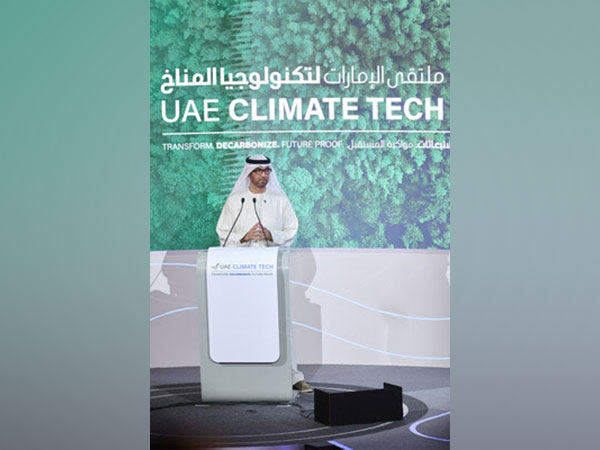COP28 organiser "pleasantly surprised" by development bank reform talks
A senior official organising the upcoming COP28 United Nations climate summit in the United Arab Emirates endorsed the early work of the new World Bank chief on Wednesday, but said more needed to be done to finance the transition to a low-carbon global economy. Majid Al Suwaidi, director general of COP28, which will be held in Dubai in December, said reforming development institutions like the World Bank was a priority.

A senior official organising the upcoming COP28 United Nations climate summit in the United Arab Emirates endorsed the early work of the new World Bank chief on Wednesday, but said more needed to be done to finance the transition to a low-carbon global economy.
Majid Al Suwaidi, director general of COP28, which will be held in Dubai in December, said reforming development institutions like the World Bank was a priority. "The reform conversation is one that I have been pleasantly surprised by," Al Suwaidi told Reuters during the annual U.N. general assembly in New York.
"With Ajay (Banga) leading the World Bank there has been a lot of progress there," he added, referring to the former Mastercard chief executive who took the helm at the U.S. government-backed bank less than four months ago. Banga's plan to help channel money to help free up lending includes offering pauses in debt repayments, providing new types of insurance and helping to build advance emergency systems.
Al Suwaidi said it still took too long to get money out of vehicles like the U.N.-backed Green Climate Fund (GCF). "The GCF takes seven years to deploy capital to developing countries, that can't be acceptable," he said.
"The World Bank and other international financial institutions are not supporting green investment at scale for various complicated reasons, whether it be around risk or risk appetite or credit ratings ... capital is not flowing." Installing wind turbines, solar panels and other low-carbon technology to replace coal and gas plants and fossil-fired transport that currently underpin many of the world's economies will require investment of around $4 trillion a year by 2030, the International Energy Agency has estimated.
(This story has not been edited by Devdiscourse staff and is auto-generated from a syndicated feed.)
ALSO READ
New York's Controversial Hotel Deal with Pakistan Sparks Debate
Cowboys' Resurgence: New York Triumphs in USPL Season 3 Finale
All Congress MPs from UP to accompany Rahul Gandhi to Sambhal on Wednesday: UP Congress chief Ajay Rai.
Rahul Gandhi to visit Sambhal on Wednesday: UP Cong chief Ajay Rai.
Tragic Loss as UnitedHealthcare CEO Is Fatally Shot in New York










